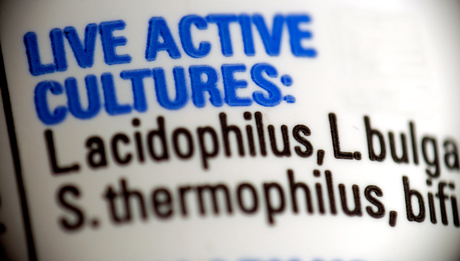Excerpts from: Cohen PA. Probiotic Safety—No Guarantees. JAMA Intern Med. 2018;178(12):1577–1578
Isolated live bugs are being promoted for their purported beneficial or “probiotic” properties. Claims such as these are all too common: “boosts digestive health”; “supports the immune system”; “friendly bacteria that benefit your skin, health & beauty”.
Do probiotics really work? Are there safety concerns we should be worried about?
Creative marketing and a general fascination for gut bacteria have combined to create a huge market for probiotics. Perhaps surprisingly, to sell a product that contains live microorganisms there is no legal requirement to provide evidence that it works or, importantly, that it is safe.
What is a probiotic?
The World Health Organization defines probiotics as “live microorganisms which when administered in adequate amounts confer a health benefit on the host.”
The state of the evidence
Certain live microorganisms do have well-defined health benefits, and emerging literature supports the use of select strains of bacteria and yeast to treat specific medical conditions. The yeast Saccharomyces boulardii, for example, reduces the rates of antibiotic-associated diarrhea in children and can decrease rates of recurrent Clostridium difficile infections in adults, when combined with antibiotics. Most microorganisms used in the production of food, however, do not have proven health benefits, and their safety, when sold as probiotic supplements, has not been fully established.
Although preliminary evidence supports the use of specific strains of probiotics in certain clinical settings, such as preventing C. difficile and antibiotic-associated diarrhea, widespread use, particularly among people who are healthy, has greatly outpaced the science.
Probiotics are promoted to assist healthy adults, adolescents, and children to maintain normal intestinal function and to sustain cardiovascular, respiratory, immunologic, reproductive, and even psychological health. Despite the advertised indications, there are no large, long-term clinical trials proving that probiotics offer clinical benefits for people who are already healthy.
For instance, a comprehensive review of relevant literature published earlier this year concluded that “the feasibility of probiotics consumption to provide benefits in healthy adults requires further investigation.” In other words, there may be benefits, but the evidence simply does not exist to definitively say either way.
What are the possible dangers?
Over the years, dozens of case reports have underscored the potential hazards of probiotic supplementation. Risks include fungemia and bacteremia — the presence of fungi or bacteria in the blood, respectively. Individuals with compromised immune systems are most at risk, including the very young and old. These organisms have evolved to infect, after all. Because many probiotic trials do not report adverse events sufficiently, the exact scope of this problem is not known. Aside from the risk of opportunistic infections sparked by probiotic consumption, there is the potential threat of low quality and contaminated products.
Take-home message
Consumers and physicians should not assume that the label on probiotic supplements provides adequate information to determine if consuming the live microorganism is worth the risk

